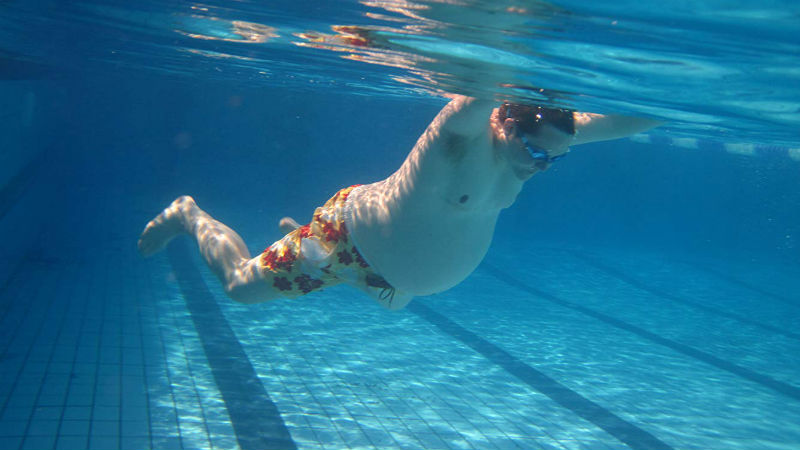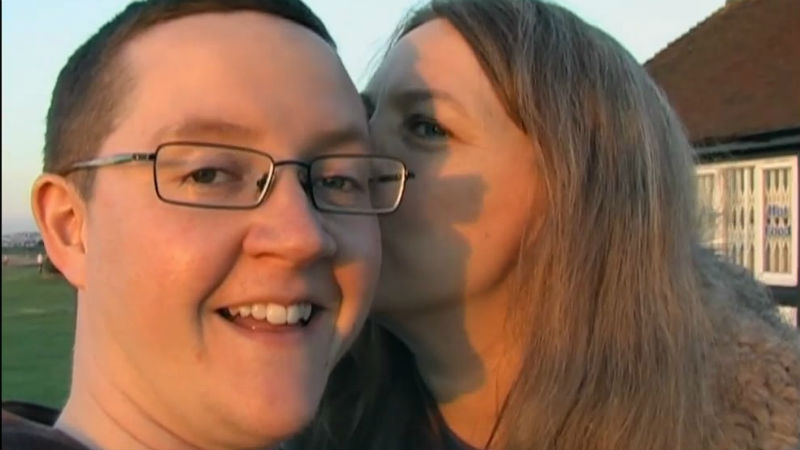Yoo Jae-yi (Han Hae-in) is a young and promising writer. Her first published novel is a best-seller, and her editor (Choi Hee-jin) strongly encourages her to continue writing. She is in a relationship with the handsome and loving Kang Shin-chul (Kim Geon-woo), an English teacher eyeing a directorial position in the private school where he teaches. Yoo has a restless mind, and finds comfort in writing fiction. She is indifferent success. She only cares about the quality of her books, in an obsessive behaviour pattern familiar to many creative professionals. She rejects marriage Far more significantly, she believes that motherhood would have a destructive impact on her ability to write.
Yoo Ji-young’s second feature film touches on the often overlooked fact that not all women wish to be mothers, and that pregnancy can be an excruciating, extremely undesirable experience. Yoo and Kim are caught entirely by surprise by the unwanted child, unaware that contraception is never 100% guaranteed. The gynaecologist is delighted to announce the news to our shellshocked protagonist and her husband; she replies quiet and incredulous “excuse me”. Abortion is legal in Korea, and Yoo is below the 14-week threshold, however her frail body (she has thin uterine walls and anaemia) prevents doctor from carrying out the procedure (which could lead to her death or paralysis). She is forced to forge ahead with the pregnancy, despite her sheer repulsion of the unborn child.
Kim eventually grows accustomed to the idea of parenthood. Yoo – the person who has to bear the physical weight of the gestation – never shares his sentiment. Her strange behaviour oscillates between deafening silence and faint whimpering. He listens to the baby kicking, while the tragic mother-to-be describes the sensation of having an “alien” inside her. She has no interest in the gender of the child.
It gets worse. The social pressures have a devastating impact on the introspective intellectual. Friends and family repeatedly offer her advice and interfere with her diet. A woman asks: “is it ok to get stressed while pregnant?”, while another one questions: “is it ok for pregnant women to attend funerals?”, both without realising the absurdity and the reserse impact of their clumsy interrogation. In what’s perhaps the film’s most significant scene, Yoo breaks down in tears of joy when her editor discusses her wellbeing and her future, instead of focussing solely on the unborn baby. Yoo’s performance is very convincing as a woman no longer comfortable in her own body.
Yoo decides to carry on writing and drinking alcohol during pregnancy, in an attempt to retain her sanity. She finds a venting outlet in writing about her ordeal. An interviewer asks her during a press conference what her new book is about. She replies: “It’s about a woman who does not want to be a mother”, before explaining that she’s “halfway through it”. Her comment refers to both the book and the pregnancy, demonstrating that there is an inexorable connection between her personal experience and her writing. Such connection may also exist between the filmmaker and her movie. The fact that the name of the director and of the protagonist are almost identical suggests an autobiographic element.
This 155-minute drama is a profound character study of a woman having a mental breakdown. The first two hours are reflexive and engaging, with a simple and realistic camerawork and no music score (heightening the moments of awkward silence and the constantly brewing tension). Regrettably, the director inserts too many topics in the final half an hour of the movie, when Kim’s personal and professional life at work spirals out of control. The story slips into gratuitous misery fest territory, with countless pregnant pauses (pun intended) that neither create a sense of suspense nor add anything valuable to the story. The ending is entirely redundant. Yoo Ji-young is a brave and talented filmmaker. She could have terminated her film a little more prematurely. Some things are better when they are not carried to full term.
Birth is in the Official Selection of the 41st Turin International Film Festival.










